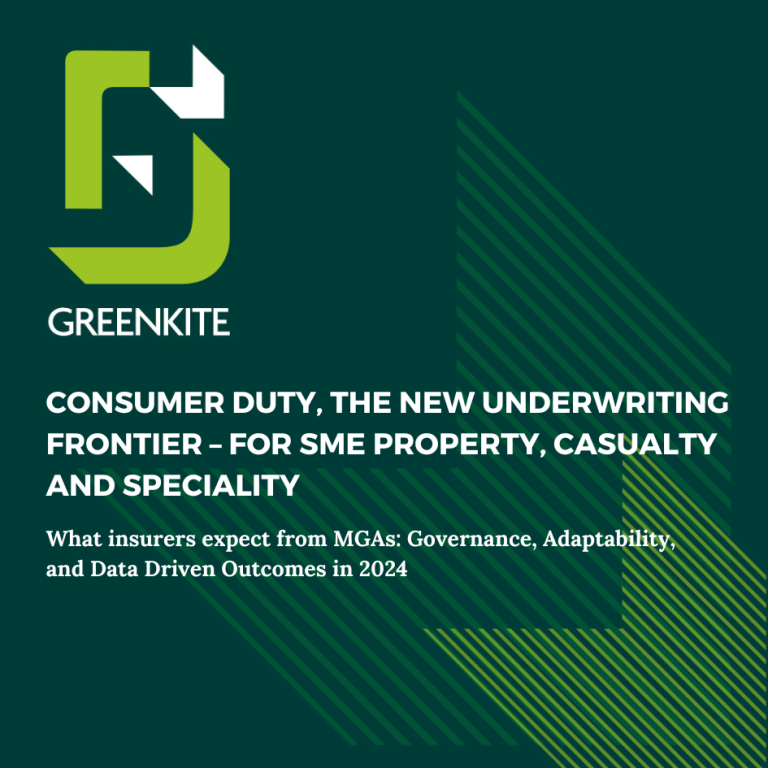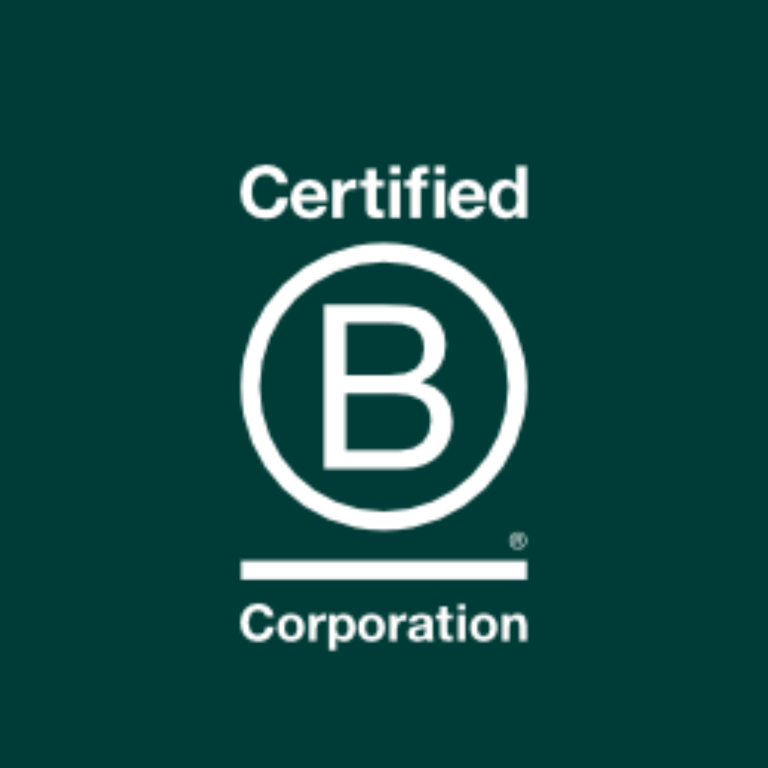
What insurers expect from MGAs: Governance, Adaptability, and Data Driven Outcomes in 2024
Market Overview – a challenging Landscape
The UK insurance market has shifted into a hard market, marked by rising premiums, stricter underwriting, and reduced coverage. The evolving regulatory environment, economic pressures and increasing reliance on AI and data tools are compounding challenges for underwriters and firms.
The cost-of-living crisis and the introduction of additional regulations, including The Consumer Duty, have further stressed the market, requiring many products to be revamped. The Temporary Permissions Regime has worsened capacity shortage, making it harder for MGAs to find capacity. Many MGAs are struggling to secure alternative capacity as the number of insurers and the potential capacity they have access to has been reduced.
MGA’s and MGU’s must adapt, especially as insurers increasingly scrutinize fair value and target market segmentations. Firms that evolve, like Apple and Amazon thrive. Those that fail to adapt may face extinction – think Blockbuster.
The key to navigating 2024 and 2025 challenges lie in ‘Governance and Cross Functional Teamwork’’ in a way that they may never have done so before.
MGA’s must embrace these elements to succeed in the current market environment.
Consumer Duty – Raising the Stakes
The introduction of The Consumer Duty is probably one of the most impactful regulatory changes to affect underwriting in recent years, for both general insurance and Lloyd’s firms. The focus on delivering ‘good customer outcomes’, backed by data for consumers, even in commercial insurance, marks a shift in accountability.
The challenge of Consumer Duty (and General Insurance Pricing Practices) is magnified in the SME space, with a seismic shift in the classification of many of these firms who now fall within the definition of “customer” and “consumer” and are brought in under The Duty.
Many firms in this space, have struggled to adapt and continue to treat the two man-band pub owner buying commercial property insurance, or the graphic designer seeking PI, as a commercial customer and they now fall within the definition of “customer”.
SME insurers in the P&C and Specialty markets must also ensure that their products provide clear value to a wide range of businesses – from larger enterprises to sole traders.
The FCA is closely watching this space, already enforcing Skilled Person Reviews to address poor practices – ignoring this shift is not an option.
Insurers’ rising Expectations from MGA’s
It’s no longer just about profitability. The Consumer Duty mandates more rigorous due diligence when onboarding MGA’s. Insurers now demand that MGA’s show precise assessments of target markets, ensure fair terms and guarantee that customers receive good outcomes.
Taking the example of an insurer who co-manufactures products with an MGA or MGU, the challenges have been extensive – particularly in terms of fair value.
It is no longer sufficient for just the underwriting team to assess a deal based on its profitability.
Consumer Duty now requires an intense standard of due diligence when taking on an MGA/MGU as the FCA have made it clear that the Insurer is always accountable for ensuring [the good] outcomes a customer receives. Insurers are now increasingly looking at:
- Is the target market well defined, for each sub section of customer – Large corporate vs. sole trader?
- Is pricing fair, and do product assessments take account of /challenge the true cost of providing services, across the value chain?
- Is the right data strategy in place to provide us with the timely viability?
- Will claims processes and communications meet the needs of the target market?
- Are the right outcomes being captured and reported?
- Has the chosen TPA got strong operational resilience?
By addressing these, MGA’s can more successfully align with insurer expectations and maintain longer-term partnerships.
How MGA’s MGU’s Can Bridge the Gap for Insurers
Given that MGA’s and MGU’s typically handle product design, target market, and justifying fair value, they are critical partners for insurers facing growing regulatory pressures. Insurers now rely more heavily on MGAs to support governance and reporting needs, making MGA’s a vital extension of their regulatory oversight – consider yourself the ‘long arm of the insurer’.
Those MGA’s/MGU’s lacking advanced data and automated governance controls will struggle to meet insurer demands and maintain long-term capacity. A clear data strategy, efficient reporting and robust analytics are essential to meeting and maintaining strong partnerships with insurers.
As underwriting evolves, data science plays an increasing role. This shift not only requires strong governance and control but also deep collaboration with insurers, to ensure that predictive models are accurate, do not discriminate or negatively impact fair value for the chosen target market segments and lastly, are robustly well governed.
Please get in contact with our Director of Regulation and Assurance, Claire Carpenter ([email protected]), if you need any support with Consumer Duty implementation, identifying your target market segments, or general support to assist with regulatory or insurer reporting requirements.
Navigating the FCA Consumer Duty Framework: A Perspective from the Underwriting Desk
As an experienced underwriter, I’ve witnessed many regulatory shifts, but none have had quite the impact of the Financial Conduct Authority’s (FCA) Consumer Duty. This framework is far more than just another compliance exercise—it has fundamentally altered how we approach underwriting, placing consumer outcomes at the forefront of our work. In addition to procedural changes, it has demanded a re-evaluation of the skills underwriters need to thrive in this new landscape.
Understanding the Consumer Duty Framework
The Consumer Duty framework is the FCA’s ambitious initiative to ensure that financial firms, including insurers, act in the best interests of their retail customers. The framework mandates a higher standard of consumer protection across the industry and focuses on delivering good outcomes through four key areas:
1.Products and Services – Ensuring that offerings are designed with genuine consumer needs in mind.
2.Price and Value – Ensuring that customers receive fair value for the price they pay.
3.Consumer Understanding – Providing clear, transparent communication that aids customer decision-making.
4.Consumer Support – Delivering ongoing support throughout the customer journey.
From an underwriting perspective, these goals have influenced everything from risk assessment and product design to the way we engage with customers and brokers. It’s no longer enough to balance risk and profit—we must now ensure that our decisions consistently deliver fair outcomes for consumers.
Day-to-Day Impact on Underwriting
1.Product Governance and Risk Management Adjustments
The framework has heightened the importance of product governance. As underwriters, we are tasked with ensuring that the products we offer are fit for purpose and address genuine consumer needs. This requires frequent reviews of product lines, a deeper analysis of risk appetite, and adapting to the evolving needs of the market.
In practical terms, this has meant being more selective about which risks we underwrite and ensuring that products like high-risk insurance policies are not just profitable, but also beneficial to the customers purchasing them. We must now ask whether the risk profile and policy structure serve the customer’s long-term interests.
2.Fair Pricing and Value Considerations
The focus on fair pricing has required significant changes to our pricing models. Underwriters are used to balancing risk with premiums, but now, we are also responsible for ensuring that the price represents fair value. This requires collaboration with actuaries, pricing teams, and compliance departments to ensure that we avoid pricing structures that could be perceived as exploitative or misaligned with customer outcomes.
This shift in thinking has created a dual focus on both the technical risk behind premiums and the transparency of pricing structures, ensuring consumers feel they are receiving genuine value for the coverage provided.
3.Enhanced Transparency in Communication
Another significant shift is in how we communicate with both brokers and consumers. The Consumer Duty framework has pushed us to deliver clearer and more accessible explanations of product features, exclusions, and pricing.
In the past, some of the complexity surrounding policies could have been lost in translation or hidden behind technical jargon. Now, we are encouraged to present information in a way that the average consumer can easily understand. This is not just about compliance—it is about fostering greater trust and transparency in the insurance process.
4.Ongoing Accountability for Consumer Outcomes
The Consumer Duty framework also imposes a new layer of accountability. Underwriters are now more directly responsible for ensuring that the policies they develop lead to positive customer outcomes. This involves an ongoing review of product performance, with an emphasis on monitoring claims experiences, consumer complaints, and how well the product meets customer expectations over time.
As underwriters, we must now work closely with claims teams and customer service representatives to track product performance and adjust policies as necessary to avoid adverse outcomes. This collaborative approach is crucial for meeting the framework’s goals of fairness and transparency.
Skills Implications for Underwriters
With these regulatory changes, the role of an underwriter has evolved, and so too have the skills required to succeed in this new environment. The shift toward a consumer-focused model requires a blend of traditional technical expertise and softer skills, as well as a mindset geared toward continuous learning and adaptation.
1.Enhanced Analytical and Governance Skills
Underwriters now need to be more involved in governance and regulatory compliance than ever before. This means not only understanding risk analytics but also having a strong grasp of the broader regulatory landscape. It requires an enhanced ability to balance technical underwriting knowledge with a clear understanding of customer outcomes.
Skills in data analysis and regulatory interpretation are becoming more critical. Underwriters must now sift through a variety of data sources—not just to assess risk, but to ensure that their products are fair and provide value.
2.Effective Communication and Customer-Centricity
The FCA’s emphasis on consumer understanding has highlighted the need for stronger communication skills. Underwriters, who often interact with brokers, agents, and occasionally clients, now need to be adept at explaining complex policies in clear and straightforward terms. This demands an ability to translate technical information into language that resonates with non-experts, empowering customers to make informed decisions.
Customer-centricity, a traditionally peripheral focus for underwriters, is now a core part of our job. Underwriters need to develop a deeper empathy for customer needs and outcomes, which in turn fosters greater alignment between policy design and customer protection.
3.Collaborative and Cross-Functional Skills
The role of underwriters is increasingly collaborative. The need to work closely with teams from compliance, legal, claims, and actuarial departments means that cross-functional collaboration skills are now essential. Having the ability to engage with different stakeholders, understand their priorities, and integrate diverse perspectives into underwriting decisions is a must.
This also means more involvement in training and development initiatives, particularly around product governance and customer outcome tracking, ensuring that every step of the underwriting process is aligned with the FCA’s standards.
4.Adaptability and Continuous Learning
The evolving regulatory landscape means that underwriters must be agile and adaptable. The Consumer Duty framework represents a broader trend toward more consumer-focused regulations, so underwriters need to be proactive in staying ahead of regulatory developments. This requires an openness to continuous learning—whether through formal training or self-directed study—to stay current on the skills needed to thrive in this new regulatory environment.
Conclusion: The Future of Underwriting Under Consumer Duty
The FCA’s Consumer Duty framework has not only introduced new responsibilities for underwriters but has also redefined the skills and mindset needed to succeed in our profession. Technical risk assessment will always be central to our work, but today’s environment requires a more holistic view of product value, consumer impact, and transparent communication.
As underwriters, we must embrace these changes as an opportunity to enhance both the quality of our work and the trust that consumers place in the insurance industry. By investing in new skills and fostering a deeper understanding of consumer needs, we can ensure that we meet the challenges of the future while delivering better outcomes for customers.
Ultimately, the role of the underwriter has evolved into something far more dynamic—where balancing risk, compliance, and customer welfare defines the future of our profession.






